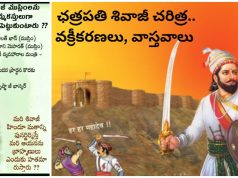The Centre and Jammu and Kashmir government were asked by the Supreme Court on Monday to “sit together” and find a solution to “contentious” issues including whether over 68 per cent Muslims in the state can be regarded as minority and avail benefits under the category.
“This is a very, very important issue. You both (the Centre and state government) sit together and try to find a solution to the contentious issue,” a bench comprising Chief Justice J S Khehar and Justices D Y Chandrachud and S K Kaul said.
The court asked them to file a proposal on the issue within four weeks.
Additional Solicitor General Tushar Mehta, appearing for the Centre, said it is a national issue as in some states the community, which is part of minorities nationally, is in majority.
It was also stated that Sikhs, who fell under the minority category nationally, are in majority in Punjab.
“Let us focus on Jammu and Kashmir. Let us deal with the issue at hand,” the bench said.
Senior advocate Gopal Subramaniam, representing Jammu and Kashmir, said that the state government is willing to sit and try to find a solution to the issue.
Taking note of willingness of both the governments, the bench said, “We hope and expect that a fruitful decision will emerge on the next date of hearing.”
Earlier, the court had issued notice to the Centre, the state government and the National Commission for Minorities (NCM) on the plea filed by Jammu-based advocate Ankur Sharma, alleging that benefits accruing to minorities were being taken away by Muslims, who were in majority in J-K.
The plea also alleged that rights of religious and linguistic ‘minorities’ in the state were being “siphoned off illegally and arbitrarily” due to extension of benefits to “unqualified sections” of the population.
Sharma alleged the provisions of the National Commission for Minorities Act is not applicable in Jammu and Kashmir due to caveat put by Article 370 of the Constitution and moreover, crores of rupees are being given to members of the majority community under various schemes meant for linguistic and religious minorities.
The state government is violating Article 29 (protection of interests of minorities) and Article 30 (right of minorities to establish and administer educational institutions) under the Constitution.
Courtesy: PTI














